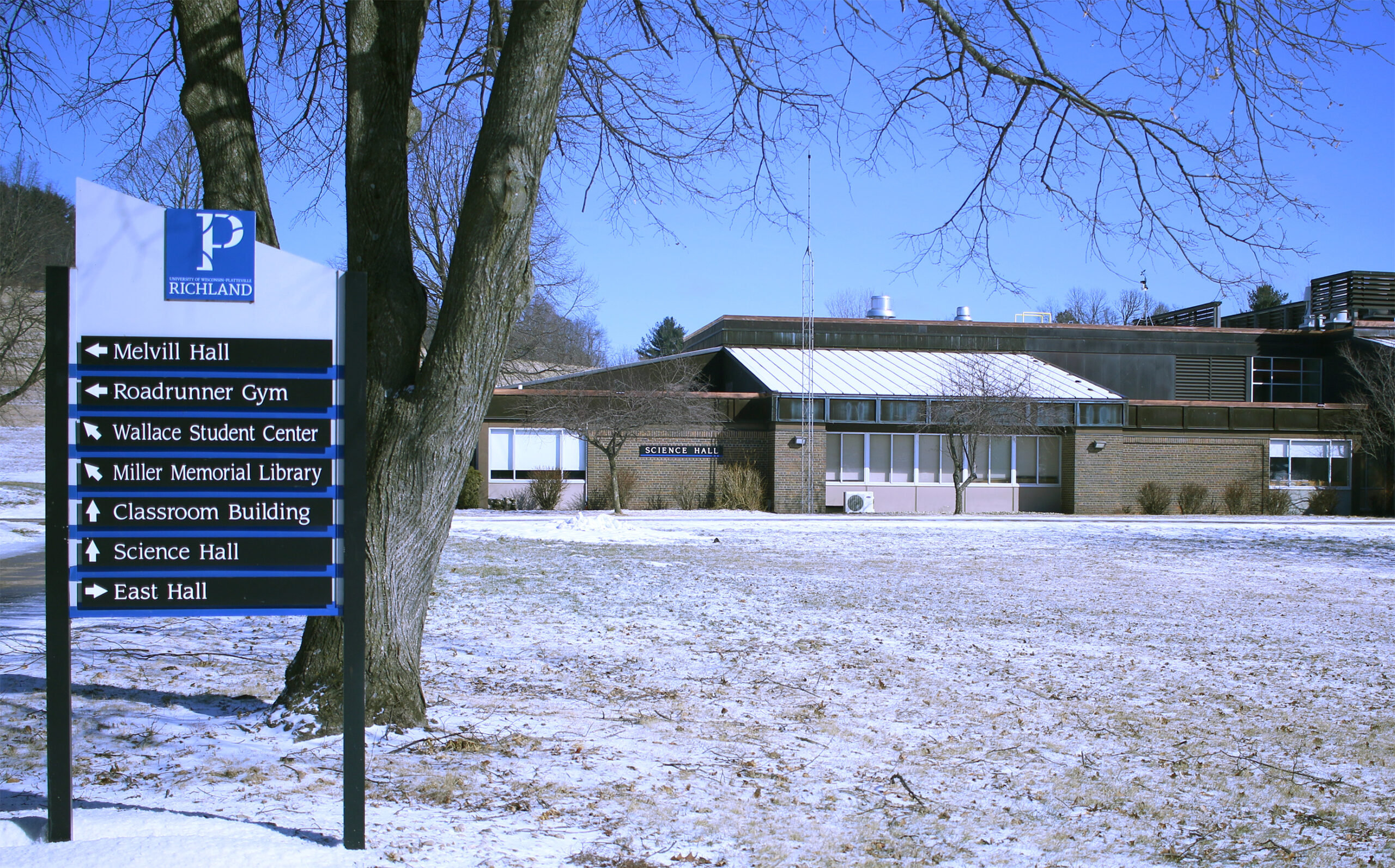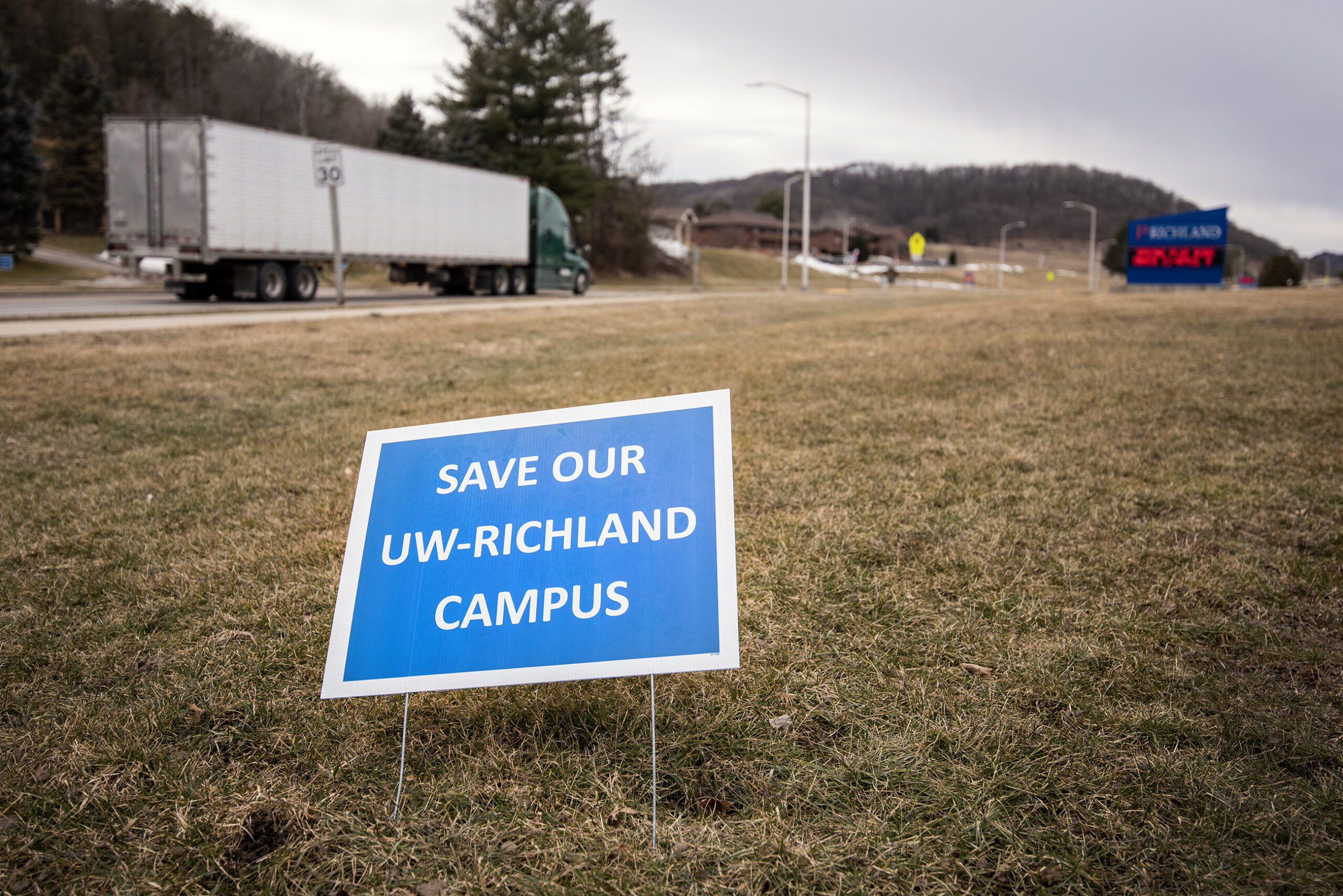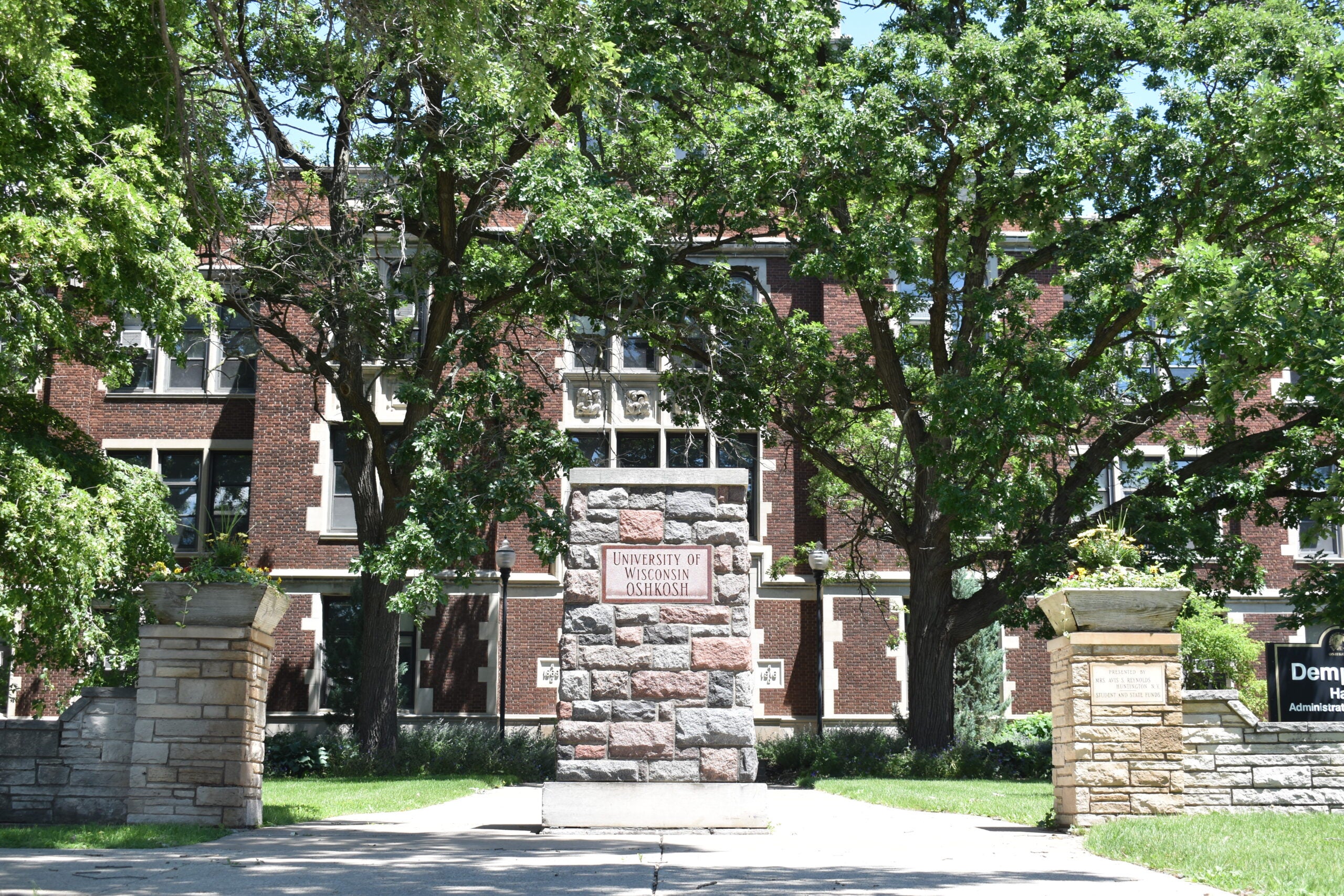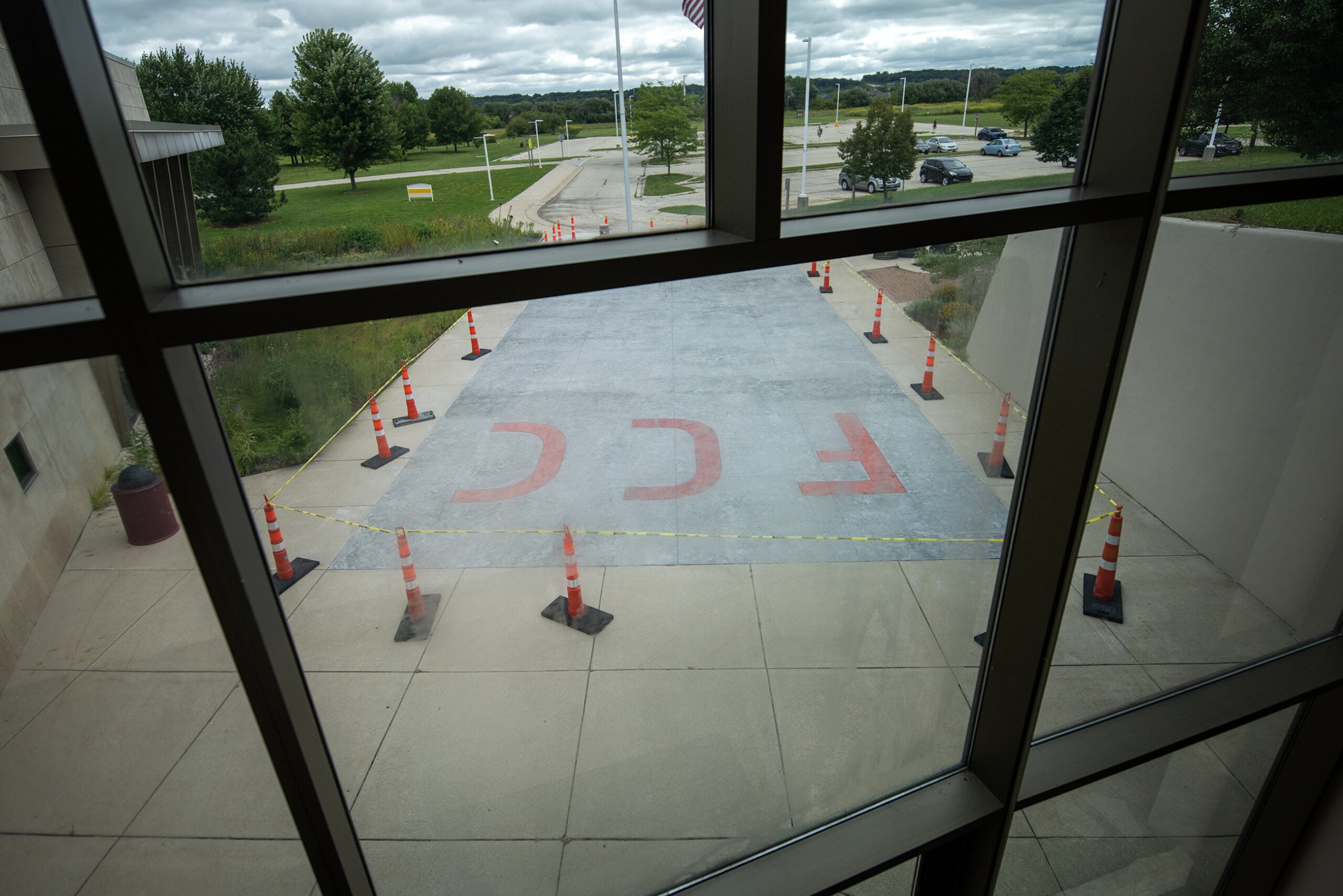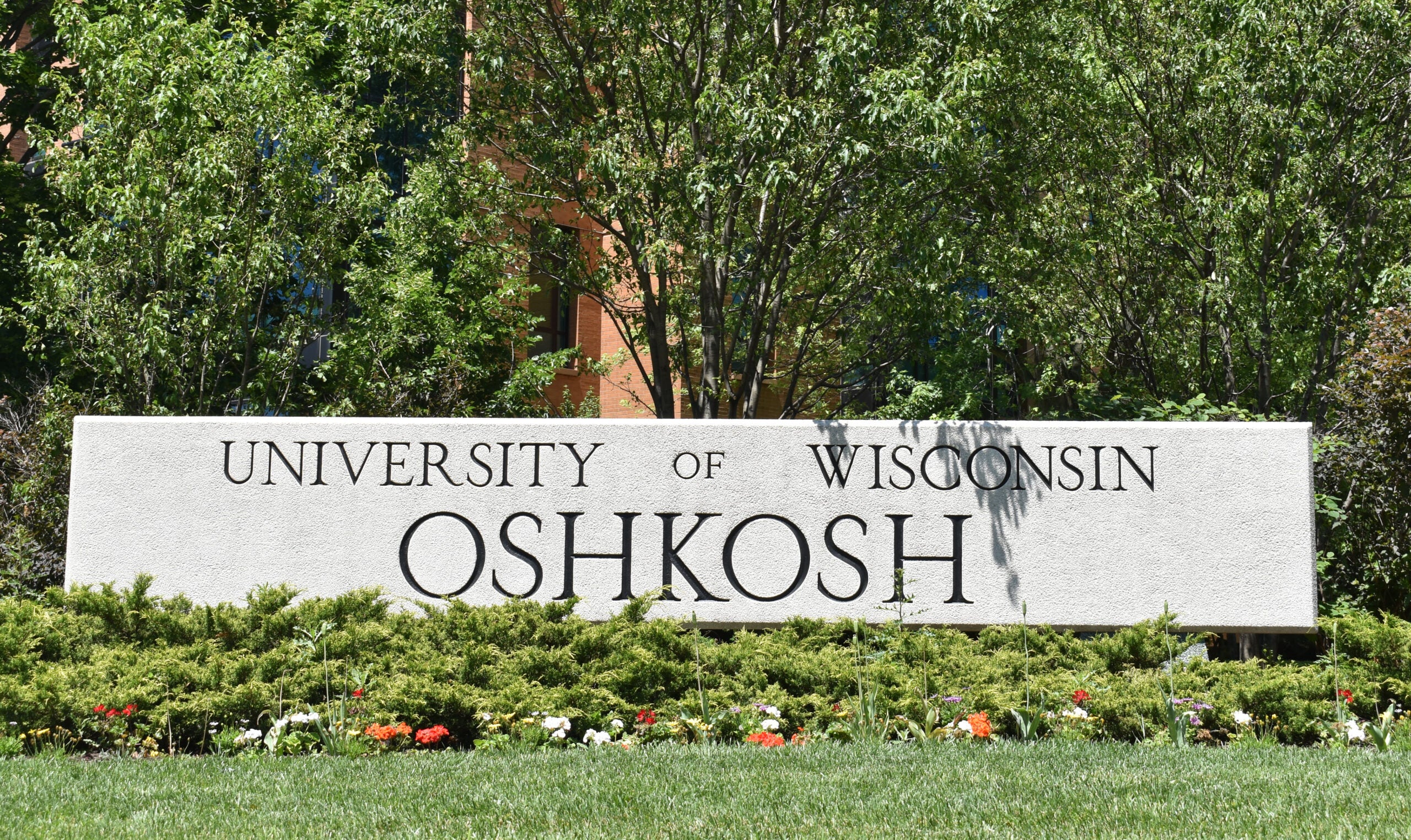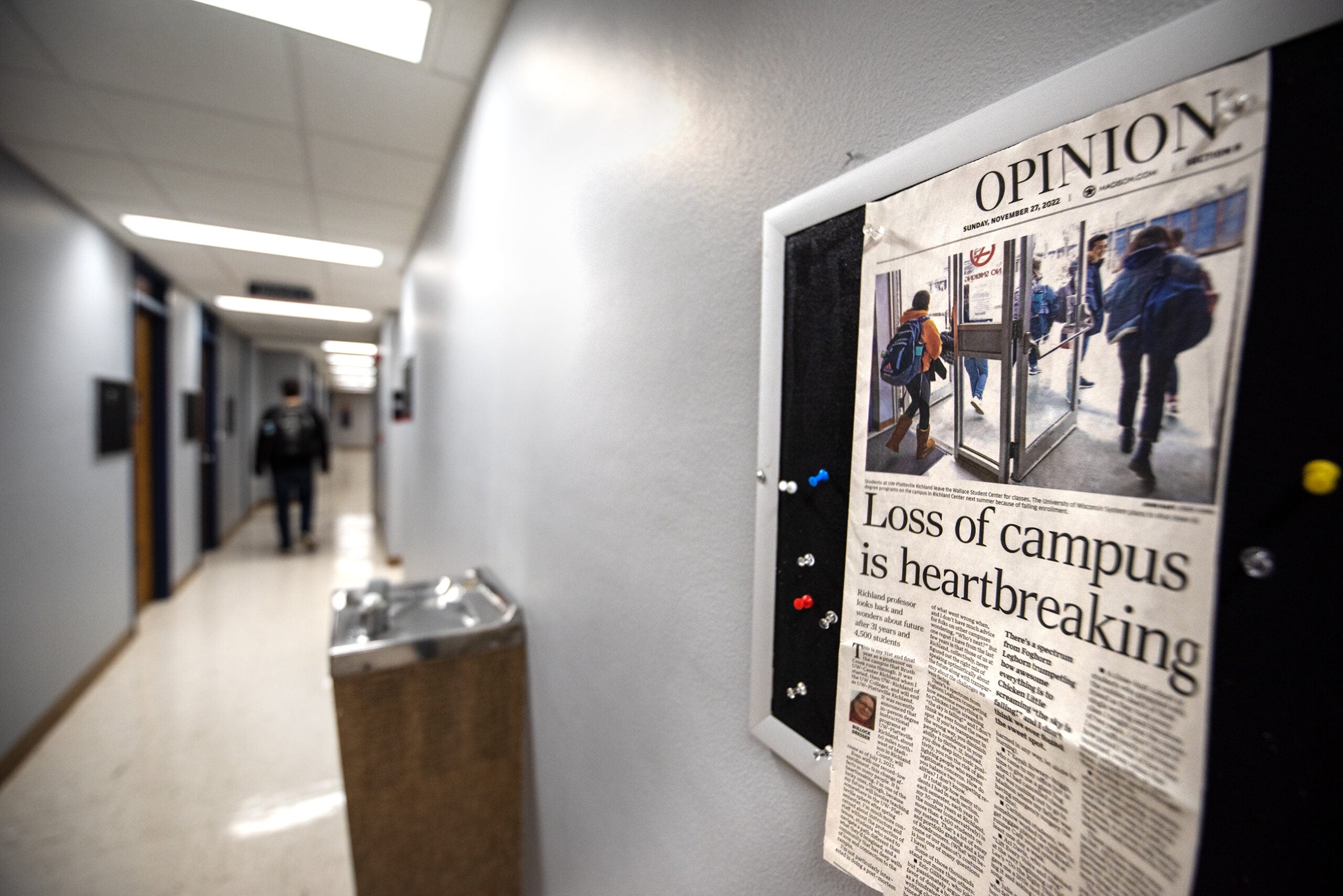The University of Wisconsin System is ending in-person classes at UW-Platteville’s Richland campus on July 1 following years of steep enrollment declines. It’s a major shift for Richland Center, which has been home to the college campus for 55 years.
Richland County Board Chair Marty Brewer knew it was coming, but hearing that in-person classes, instructors and degree-seeking students would be moved to either UW-Platteville’s main campus or its campus in Baraboo still stung.
“When I talked to the head of the (County Board) Education Committee, she cried, you know, and why not?” Brewer said. “It’s just almost catastrophic news.”
Stay informed on the latest news
Sign up for WPR’s email newsletter.
A letter from UW System President Jay Rothman to UW-Platteville interim Chancellor Tammy Evetovich is directing administrators to create a plan to move instructional programs off the 130-acre campus in the rural city of Richland Center.
A UW System spokesman told WPR there are around 25 employees at the Richland campus. The letter directs Evetovich to include plans for transitioning faculty and staff to Platteville or Baraboo as well.
Rothman also directed Evetovich to make a plan related to maintaining a UW presence at the campus, “including, for example offering enrichment programs, online reskilling and upskilling courses for adult learners and online degree completion courses at campus facilities.”
To Brewer, the latter doesn’t seem all that reassuring.
“Here we are with this beautiful campus, and it’s not going to be utilized in the manner in which we’ve become accustomed,” Brewer said.
There were 528 students enrolled at the Richland campus in 2015. Initial UW System enrollment figures showed an estimated 64 students in September.
Brewer said he isn’t blaming the UW System for the enrollment declines, though others in Richland Center may point to a lack of a full-time campus coordinator or recruiter.
“I don’t see how the UW system could maintain it actually for as long as they have,” Brewer said. “And the pandemic, of course, was kind of the death knell.”
A statement from UW-Platteville spokesperson Paul Erickson said the university will cease “in-person degree bearing instructional activities” next July.
“We understand this is a difficult decision, and we know this situation creates uncertainty,” the statement said. “The university is committed to making the transition as positive as possible for our students, faculty and staff. Students may continue their education in the spring semester at UW-Platteville Richland, and after that we can help them continue at our Baraboo Sauk County or our Platteville location. We will also be developing individualized plans for the faculty and staff.”
UW-Platteville professor and faculty representative to the UW Board of Regents, Charles Cornett told WPR he’s shed tears too about the coming changes for the Richland campus.
“There are some really great people who put forward hundreds and hundreds of hours of thought and effort toward trying to find ways to keep in-person education at the Richland campus,” he said. “It’s not a decision any educator, let alone the special people I work with here at Platteville, take lightly.”
Cornett notes that two year campuses like Richland and 12 others around Wisconsin have, and should, continue to play an important role in providing higher education to rural communities. He said he’s hopeful the idea of using the buildings in Richland Center as a hub for adult online education will work.
“We’re hoping that we can continue to bring higher education to our region of the state, to people who might otherwise not otherwise have access,” Cornett said.
Wisconsin Public Radio, © Copyright 2025, Board of Regents of the University of Wisconsin System and Wisconsin Educational Communications Board.
